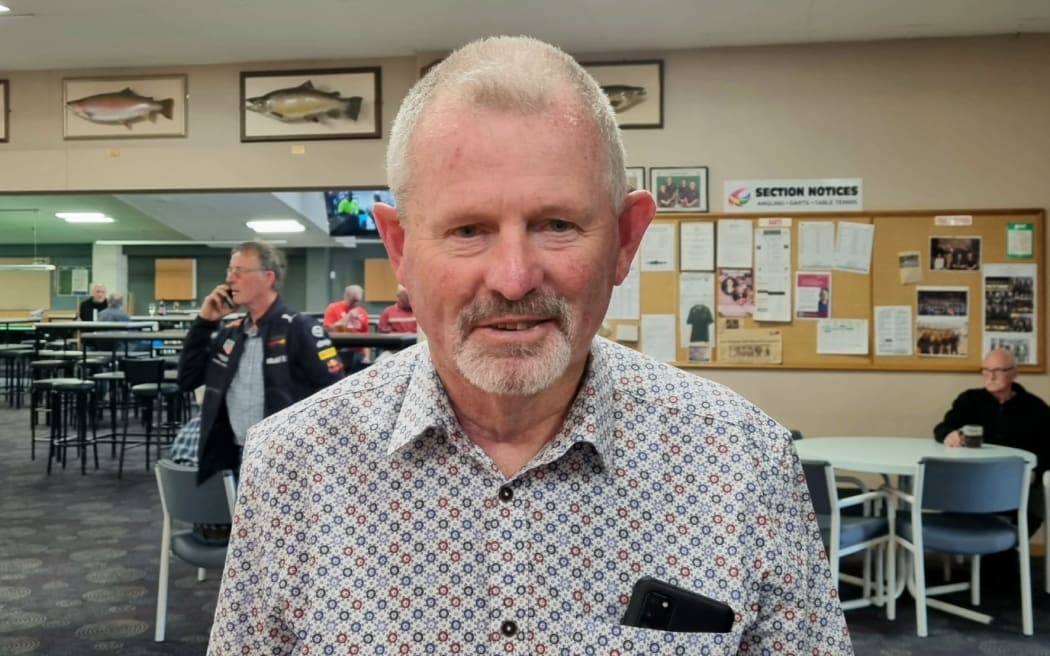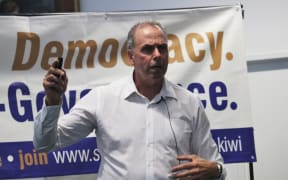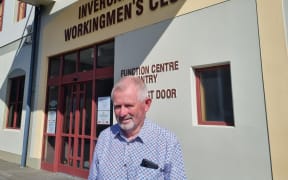
During the debate, Mayor Nobby Clark said metaphorical names could be confusing (file picture). Photo: RNZ/ Tess Brunton
Invercargill Mayor Nobby Clark has been lambasted by local iwi over his attitude towards giving civic buildings Māori names, as well as an English.
At a fiery meeting on Tuesday, Clark put forward a motion saying the council would support bilingual naming of civic buildings - but only if the Māori words relate to a building's purpose.
The recommendation suggested using metaphors or words that have a symbolic meaning should not be allowed, because they cause confusion and do not relate to the purpose of the building.
But following a heated public forum and lengthy debate, Clark amended his original motion, cutting out mention of his accompanying paper - which mentioned community concerns that some buildings had an unequal focus on te reo Māori - and instead sought to develop a plan to advance the bilingual naming of civic buildings.
Former Invercargill Deputy Mayor Toni Biddle was among the iwi delegation who spoke during the public forum.
"Please don't divide our city. Turn this notice of motion down and let the normal process continue as it is. It's unnecessary, it's unreasonable and you're only going to cause more division for our people who are going through enough already.
"Racist undertones from councillors, from mayors, from governors, from leaders is unacceptable in our community."
Clark has been criticised recently for speaking at a controversial anti-co-governance meeting, where he told the crowd that he did not speak te reo Māori by choice.
Other speakers from the iwi delegation agreed they should not have to fight to use their reo.
"We had to learn English 'cause we were told to in our schools," one said. "We're not asking you to learn te reo Māori. We're not telling you to learn te reo Māori."
The speaker also raised the point that many areas and towns in Murihiku were named using te reo Māori.
Councillor Tom Campbell supported the original motion.
"I saw the fundamental purpose of this paper being to extend the visibility of te reo in the city to a greater extent than has ever been seen in Invercargill before by having nearly all city-owned buildings given bilingual names."
During the debate, Clark said metaphorical names could be confusing. He used the council's admin building as an example - Te Hīnaki - which means 'eel pot' and has connotations of gathering together.
"One of the primary focuses of a building is not necessarily to promote te reo. The primary response of a building is to direct people to the building and what the building provides."
Mana whenua representative Evelyn Cook said the motion suggested a great disrespect towards the beauty of their reo and metaphors remained a key part of the language.
"I find it really sad that we're being asked to make our language less than it can be. That the examples that we are going to show to people are less than the full richness because it makes some people uncomfortable."
Councillor Darren Ludlow said he wanted to create a city that valued te reo Māori.
"We don't necessarily need to understand the metaphor. It's being open to understanding it."
Mana whenua representative Pania Coote wanted to know why rūnaka were not consulted.
"When we talk about community concerns in your paper, what about the concerns from Māori? There is no partnership whatsoever in this paper."
Councillor Lesley Soper questioned why the paper suggested English should be displayed first because of the very small number of te reo Māori speakers.
"What message does that send, and what is the point of having that message there when we are trying not to divide, but to come together?"
With the culturally charged meeting over, rūnaka wanted to see the mayor work harder to unite the community.




